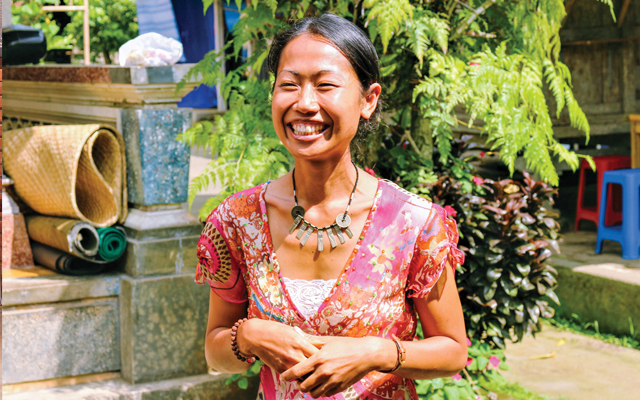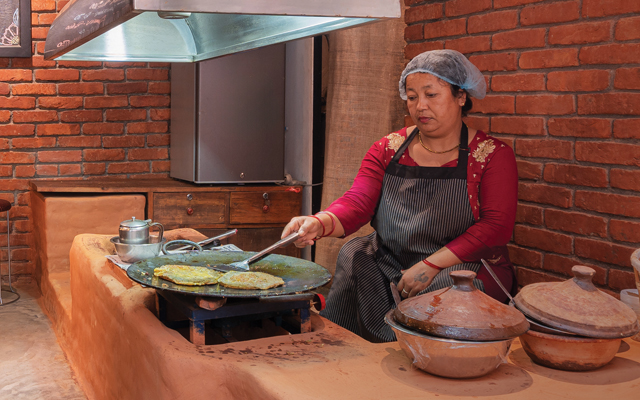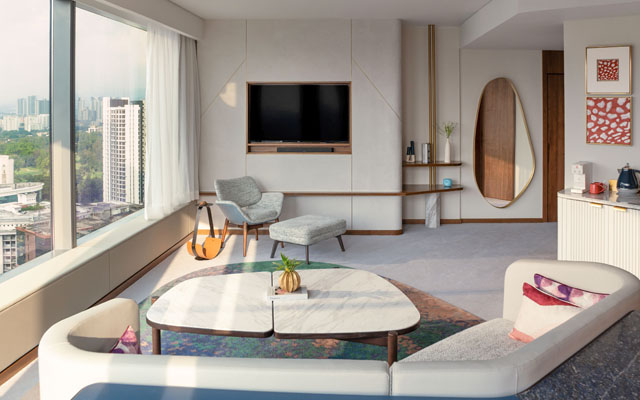Luxury travellers are paying more attention to what they are travelling for, and Asia-Pacific offers many meaningful attractions
Asia-Pacific destinations’ cultural and historical richness, authentic hospitality as well as quality travel products sold at attractive prices have been lauded as solid draws for luxury travellers, according to hoteliers and DMCs participating at the recent Further East 2024 luxury travel tradeshow in Bali.
Travel and tourism players in this region have become ever more innovative with their products and services to charm well-travelled guests, especially as luxury travellers – particularly those from the west – turn away from flashy experiences to favour engaging and immersive options.

Le Hong Lan, co-founder of Luxperia, Vietnam, said tours today are focused on delivering enhanced personalised experiences across the whole journey.
An example lies in a Luxperia programme where guests are invited to dinner with a Michelin-starred chef – Lan said the experience extends beyond the food.
“Having dinner at a Michelin-starred restaurant is nothing special for high-end travellers. However, having dinner with a Michelin-starred chef while learning to prepare Vietnamese dishes and then taking home the prized recipe is,” said Lan.
He added that the experience is special, as the interaction with the chef results in practical tips, such as substitute ingredients that guests can use back home to create a fusion Vietnamese dish of their own.
Over at Destination Asia Indonesia, 15 Impact Tour programmes have been created. These feature local personalities heading unique causes – such as interaction with someone specialising in fireflies conservation, where guests will visit rice fields in the evening to watch the lightning bugs dance in the dark; and participation in a women empowerment project.
Elaborating on the women empowerment project, David Nuetzel, director of leisure at Destination Asia Indonesia, said the initiative was founded by Sari Pollen, known affectionately as Ibu Sari, who had risen up from a difficult life following her divorce and a 12-year separation from her daughter. She created a safe space for vulnerable women and children in Bali after realising that many other women had gone through similar adversity. The women’s centre provides a secure environment for divorced women, who are often highly stigmatised and ostracised by their community, according to Nuetzel.
At the centre, women learn to cook, make clothes and accessories, and selling techniques. Visitors are invited to learn about Ibu Sari and the role of women in the Balinese society, as well as to participate in activities such as herbal tea workshop, batik painting, soap making, paper recycling, or cooking. A Balinese lunch, prepared by the women at the centre, is also served to visitors.
Product innovation with regenerative tourism in mind is also happening.
The Nanee, an 18-room hotel in Bhaktapur, Nepal, is a good example. It was built and opened in 2023 as “an experiential property to contribute to the sustainability and regeneration of the heritage of Bhaktapur”, said managing director Ajay Pradhanang.
Bhaktapur was designated as a UNESCO World Heritage Site in 1979, and is recognised for its outstanding cultural and historical significance.
Bhaktapur’s heritage and culture are given attention through The Nanee’s Storytelling Room where local artisans, storytellers and cultural experts often come to share their stories about the destination with guests. The hotel also conducts various tours and activities for guests to experience and appreciate Bhaktapur, such as street food tours, pottery workshops, and interaction with local artisans in their home, workshop or gallery.
Pradhanang explained that when visitors immerse themselves in the way of life in Bhaktaphur, they inject income into the local community, allowing the locals to sustain their traditions.

Attractively priced
The abundance of meaningful experiences unique to Asia-Pacific also comes at a good price point.
Comparing Asia with the Caribbean, which is also popular among US travellers, Nuetzel said that while airfares to this region are not cheap, due to the vast distance, luxury travellers could score a top-notch hotel stay for US$1,000 to US$1,500 per night; in the Caribbean, the same would cost between US$3,000 and US$4,000 per night, or as high as US$8,000 per night.
Luxperia’s Lan added that the hotel landscape in Asia-Pacific has become a lot more exciting after the pandemic, with many investors erecting new hotel projects and appointing international brands to manage their properties.
In Vietnam, hotel capacity has boomed, especially as developers convert apartments and residences into hotels. The supply surge has dampened prices, making fresh accommodation options available at attractive prices.
Lan added: “Similarly, airlines are expanding their network. Vietnam Airlines, for example, not only flies to and from Vietnam, but also across the region, serving routes between Laos and Cambodia. This creates borderless travel and gives travellers more destinations to choose from. With more choice, travellers’ demand has become more sophisticated,” he remarked.
Powerful welcome
Serge Dive, CEO of This is Beyond, which owns the Further East event, said Asia-Pacific is also very powerful in the competition for travellers because of its hospitality spirit.
“The region often holds very different values to those in the West. For one, many Asia-Pacific countries traditionally elevate the collective over the individual; from Confucius to Buddhism, people here have a root awareness of the small improvements to body and mind that link every human being. We can see that in how Asia-Pacific brands treat their guests by emphasising subtle touches that slowly align into a satisfying whole, even if you don’t notice that as much as splashier, typically luxurious elements to service and design.
“It’s the difference between waiting for a huge meal under magnificent chandeliers and eating by the ocean, under a night sky, with the guy who caught the crab putting it on the grill a few feet away.
“Travel in this region is more naturally attuned to what we have in common, instead of what keeps us apart,” Dive explained.
He added that the “sheer optimism of tens of millions of hospitality workers in Vietnam, Indonesia, Japan, Malaysia, New Zealand, etc, is very special”, and has the power to deliver a spectacular welcome to guests from all over the world.











